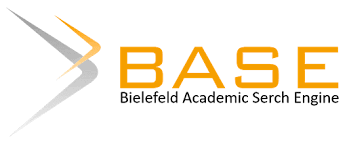PERAN PERGURUAN TINGGI DALAM PENGEMBANGAN AGROWISATA BERKELANJUTAN UNTUK MENEKAN KERUSAKAN LINGKUNGAN DI SAMBLONG, JEMBRANA, BALI
DOI:
https://doi.org/10.59819/sewagati.v3i2.4224Keywords:
Higher Education Institution, Sustainable Agrotourism, Environmental Damage, Samblong, Jembrana.Abstract
The development of sustainable agrotourism in Samblong, Jembrana, Bali, is a strategic solution to mitigate environmental degradation. This community service program aims to optimize the role of higher education institutions in supporting sustainable agrotourism development through participatory methods, training, research, and the implementation of environmentally friendly technologies. The method used involves a participatory approach, where local communities are engaged in the planning and implementation of the program. Higher education institutions provide training in agrotourism management, sustainable agricultural practices, and digital marketing, as well as technical assistance in using eco-friendly technologies. The results of this community service show an increased understanding among the community about the concept of sustainable agrotourism and the application of organic waste management technologies. Research conducted by the university yielded environmental data used as the foundation for long-term land management planning. Additionally, there was an improvement in the community's skills in promoting agrotourism digitally, directly impacting income growth. Collaboration between universities, local communities, and regional governments also succeeded in strengthening synergy in managing natural resources. Overall, this program has successfully reduced the rate of environmental degradation and improved the welfare of the community in Samblong.
Downloads
References
Adnan, H., Ibrahim, R., & Hussain, A. (2022). Precision agriculture: An innovative approach for sustainable farming. Agricultural Systems, 195, 103287.
Bujosa, A., Riera, A., & Pons, J. (2021). Sustainable agricultural tourism: Balancing economic and environmental priorities. Journal of Sustainable Tourism, 29(5), 783-797.
Baker, J., & Cooper, T. (2020). Enhancing rural skills for sustainable agritourism. Journal of Rural Development, 35(1), 123-135.
Dewi, S. (2019). Pariwisata Berkelanjutan di Bali: Potensi dan Tantangan. Udayana University Press.
Echeverría, C., Segura, F., & Valenzuela, E. (2020). Capacity building in sustainable tourism for rural development. Tourism Management Perspectives, 36, 100742.
Fennell, D. A. (2020). Tourism and environment: Sustainability and economic development. Routledge.
Garcia, M., Torres, E., & Martinez, L. (2021). Bridging the gap: Academic-community partnerships for sustainable development. Sustainable Development, 29(2), 234-246.
Gössling, S., & Peeters, P. (2015). Assessing tourism's global environmental impact 1900–2050. Journal of Sustainable Tourism, 23(5), 639-659.
Gössling, S., Hall, C. M., & Scott, D. (2021). Pandemics, tourism and global change: a rapid assessment of COVID-19. Journal of Sustainable Tourism, 29(1), 1-20.
Harris, P., Wong, C., & Lee, J. (2021). The role of education in promoting sustainable agriculture. Journal of Environmental Education, 45(3), 567-580.
John, A., & Smith, B. (2021). Sustainable Tourism and Environmental Conservation. Oxford University Press.
Jones, A., Brown, K., & Smith, P. (2021). Knowledge transfer in sustainable tourism: Building local capacity. Sustainability, 13(7), 1405-1418.
Jones, S., Markowitz, M., & Pérez-Rincón, M. (2019). Agrotourism and Sustainable Development: An Approach to Environmental Conservation in Rural Communities. Environmental Research Letters, 14(7), 1-12.
Li, X., Zhang, Y., & Wang, L. (2020). Sustainable rural tourism and community-based development. Journal of Environmental Science, 45(6), 987-1003.
Miller, S., Johnson, D., & Parker, L. (2022). Digital marketing for sustainable agritourism. Tourism Management, 40(3), 589-601.
Rodelio, J., et al. (2021). Community Empowerment in Rural Tourism Development: A Case Study of Sustainable Tourism in Southeast Asia. Journal of Community Development, 47(2), 256-274.
Sutjipto, H. (2020). Pengelolaan Lingkungan dalam Sektor Pariwisata. Gadjah Mada University Press.
Smith, R., Johnson, T., & Green, P. (2022). Renewable energy and waste management in sustainable agrotourism. International Journal of Environmental Science, 17(3), 305-320.
Xu, L., Wu, H., & Li, Y. (2020). Community participation in sustainable agrotourism development. Journal of Rural Development, 39(1), 128-140.
Smith, J., Williams, T., & Lee, R. (2021). Government policies and local development in sustainable tourism. Journal of Sustainable Tourism, 39(4), 1056-1070.
Sari, D., Wijaya, T., & Kusuma, H. (2022). Implementing green technology in rural tourism development. Sustainable Development Journal, 38(2), 110-126.
Schaller, L., et al. (2017). The Role of Technology in Sustainable Agricultural Tourism. Journal of Technology and Tourism, 11(3), 145-158.
Surya, W. A., et al. (2020). Sustainable Agro-tourism and Its Impact on the Local Economy: The Case of Bali. Journal of Sustainable Agriculture, 42(4), 578-590.
Tuan, L. A., Hoa, L. T., & Nguyen, T. H. (2021). Sustainable agritourism development: A pathway for rural communities. Journal of Rural Studies, 87, 147-155.
Zhang, H., Liu, M., & Zhao, Y. (2020). Ecological impacts of agritourism and sustainable management practices. Environmental Science and Policy, 25(4), 349-358.
Downloads
Published
Issue
Section
License
Copyright (c) 2024 I Wayan Sumandya, A.A Istri Mirah Dharmadewi, I Kadek Yudha Pranata, Made Agus Wijaya, I Putu Pasek Suryawan, Ni Putu Sri Ratna Dewi, I Gusti Ayu Mira Ardanantya, I Gusti Ketut Adnyani, Tiurma Silvia Leonita, Desak Made Echa Herawati, I Putu Darma Yuda

This work is licensed under a Creative Commons Attribution-ShareAlike 4.0 International License.
Authors who publish with the Jurnal Sewagti agree to the following terms:
1. Authors retain copyright and grant the journal the right of first publication with the work simultaneously licensed under a Creative Commons Attribution License (CC BY-SA 4.0) that allows others to share the work with an acknowledgment of the work's authorship and initial publication in this journal.
2. Authors are able to enter into separate, additional contractual arrangements for the non-exclusive distribution of the journal's published version of the work (e.g., post it to an institutional repository or publish it in a book), with an acknowledgment of its initial publication in this journal.
3. Authors are permitted and encouraged to post their work online (e.g., in institutional repositories or on their website) prior to and during the submission process, as it can lead to productive exchanges, as well as earlier and greater citation of published work. (See The Effect of Open Access) .




















